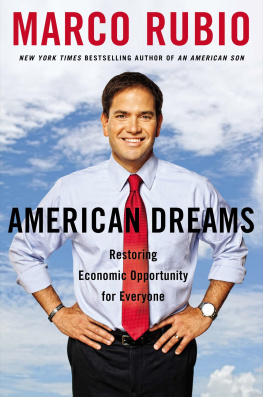How to pursue your dreams without giving your parents a heart attack.
All rights reserved.
How to pursue your dreams without giving your parents a heart attack.
T.S. Eliot, Four Quartets
To Mom & Dad.
Introduction
What does your dream life look like? Really take a moment here and actually try to visualize it. Seriouslystop and think before you keep reading.
Where would you live? What would the weather be like? How would you dress? How would you feel?
Two years ago, I had a clear vision for my dream life. I wanted to be a jet-setting, cold-shower-taking entrepreneur. I would live in an ultra-modern apartment in New York City and spend most of my days exploring and flying to new places, taking breaks to write and tend to my profitable business. I also would be in peak shape, make virtually no mistakes, and have an easygoing approach to life.
This vision was a stark contrast to my reality at the time. I had no plans of being on a jet anytime soon, and my showers were mostly hot. My apartment was not ultra-modern, and I spent most of my days inside experiencing existential anguish, taking breaks to study and write. I also was not in peak shape, made a lot of mistakes, and was the opposite of easygoing.
I was in the middle of my first year at Columbia Law School. And, as many people warned me prior to entering, it was hard. Law school involves a lot of reading and the classes are essentially designed to stress you out. But the difficulties of school really werent my issueI was no longer sure that I wanted to be a lawyer.
In my junior year of college, an internship at a big fancy law firm exposed me to the legal profession. I walked through a lobby made of marble every day, attended extravagant galas, and earned more than I had ever been paid in my life. After this amazing internship, I decided that I would become an attorneynot because I had any particular love for law, but simply because the profession seemed prestigious and I knew it would make my parents happy.
As a child of a Nigerian immigrant, I had been groomed from birth to place paramount importance on doing well in school. I also knew that becoming a doctor, lawyer, or engineer would make my dad extremely proud. In fact, as a kid, I recalled my younger brother being good at science and knew that he was likely going to become a doctor. My brothers success intensely motivated me to make my dad proud, too. Studying law felt like the best way to continue down the path of impressing my parents with my achievements and accolades.
Prior to entering law school, however, I went through your quintessential quarter-life crisis: high school sweetheart breaks your heart, yada yada yadayou get the idea. For the first time, the blinders that I had been wearing for the past five years had been knocked off, and I suddenly began to question my journey to become a lawyer. I had put so many of my other dreams on the back burner in the pursuit to attend law school and I began to worry that I was making a mistake.
Other people seemed to agree that my worries were justified. They told me, Nobody likes lawyersyou should study business or something. Dont go to law school! Suddenly, my original dream of becoming a jet-setting, cold-shower-taking entrepreneur felt much more urgent. As I began my second semester of law school, it seemed like I had to make a choice: either pursue my dream of becoming an entrepreneur or lead what Thoreau described as a life of quiet desperation in corporate law.
Unfortunately, my parents, who had invested so much in my education, got a lot of social mileage out of my success as a student and didnt see it this way; they knew that Columbia Lawthe fourth-ranked institution in the country according to U.S. News & World Reportis commonly referred to as the premier destination for landing a lucrative role at law firms around the world.
My parents knew that I seemed to enjoy law and that my current path would lead me to a high salary. Leaving all of that for a vague interest in entrepreneurship simply didnt make sense to them. However, I knew that if I didnt take a leave of absence from school to pursue my original dream, I would live with that regret for the rest of my life. So, with a few thousand dollars in the bank and a back-of-the-envelope plan in my pocket, I mustered all the confidence I could and jumped out of my debt-fueled plane to success.
I purposefully didnt tell my parents about my plan because I knew from experience that theyd be able to talk me out of it, especially since I hadnt fully thought things out and had no way to make money. For weeks, they thought I was still in school. When I finally told them what Id done, they acted as if I had sucker-punched both of them in the gut, and my decision tested our relationship in ways I never couldve imagined.
Leaving school was extremely painful for all of us despite my efforts to figure out ways to make it less painful. I talked to everyone I could and read every single blog or forum that addressed the question, Should I go to/stay in law school? Nothing helped.
So, I decided to write a book to solve this problem.
At its simplest, this book is designed to help two groups of people.
The first group consists of ambitious, hardworking students who are trying to decide whether to follow their passion or go with a more safe and secure career path.
The second group applies to those caring and involved parents, guardians, friends, and mentors who are trying to better understand the landscape that the student in their life faces and how to best support that student in having a happy, fulfilling, and economically viable life.
In this book, I will help guide both groups toward a better understanding of how to reconcile our natural inclination to explore our interests with the pragmatism that reality and survival oftentimes require.
I believe there is no better group to learn from than immigrants to accomplish this goal. Year after year, millions of well-meaning but often overbearing parents immigrate to the United States with the goal of bringing greater socioeconomic opportunity to their families. As such, many of these parents strongly encourage their children to enter professions that are highly regarded, highly paid, highly stable, or a combination of the three; the most commonly selected ones are doctor, lawyer, and engineer. While the parental motivations for desiring these careers varies, the impact is often the same: millions of kids who feel they must choose between living a life of their own that reflects their own interests and circumstances or receiving support, encouragement, and love from their parents.
In the following chapters, well explore the answers to the following questions:
Why does the pressure to pursue these careers exist?
Does the pressure to pursue these careers pay off in the ways that parents expect?
What are the psychological and financial implications of this pressure?
Well also hear stories from first- and second-generation Americans to examine the wide variety of ways that people have crafted their own American Dream. If youre a first-generation parent, this book will help you assist your child in living a more fulfilling and more successful life. If youre a child of said parent, this book will help you build a fulfilling life without bringing shame to your






